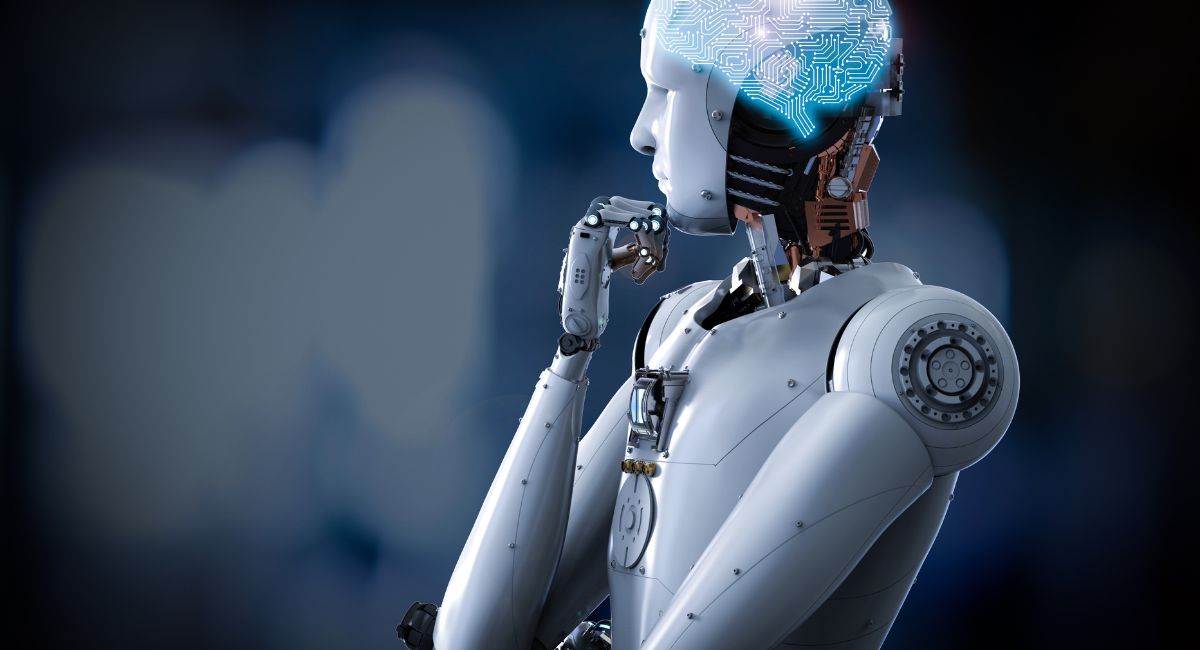How the AI And The Metaverse Workforce Will Help In Job Creation
The convergence of artificial intelligence (AI) and the metaverse is set to reshape the workforce and create new employment opportunities. As these technologies advance, they not only automate existing tasks but also generate entirely new roles and industries. In this detailed article, we’ll explore how AI and the metaverse are transforming the job landscape, creating opportunities for individuals and businesses.
The Metaverse and AI: A Dynamic Duo
The concept of the metaverse, a virtual shared space where users can interact, work, and play, has captured the imagination of both tech enthusiasts and futurists. As it takes shape, the metaverse is increasingly intertwined with artificial intelligence (AI), creating a dynamic duo that’s poised to reshape our digital and physical worlds. In this detailed exploration, we’ll delve into how AI and the metaverse are converging and the transformative impact they have on various aspects of our lives.
Defining the Metaverse and AI
The Metaverse: The metaverse is a broad, interconnected digital universe where multiple virtual worlds, simulations, and augmented reality environments coexist. It’s a space where users can interact with one another and digital elements in real-time, creating immersive experiences and new dimensions of social interaction.
Artificial Intelligence (AI): AI refers to the simulation of human intelligence in machines, enabling them to perform tasks that typically require human intelligence, such as problem-solving, understanding natural language, and learning from data.
The Convergence of AI and the Metaverse
The metaverse and AI are converging in various ways, each enhancing the capabilities of the other. Here’s how this dynamic duo is shaping the future:
1. Enhanced Virtual Environments
AI plays a pivotal role in enhancing the virtual environments of the metaverse. It creates intelligent, responsive, and adaptable digital landscapes. This means that within the metaverse, users can expect environments that change in real-time based on user interactions, creating more immersive and engaging experiences.
- Dynamic Content Generation: AI algorithms can generate and adapt virtual environments based on user behavior. For instance, in a virtual forest, AI can adjust the weather, lighting, and wildlife based on user preferences, creating a unique experience for each user.
2. AI-Driven Avatars and Characters
In the metaverse, users often represent themselves through avatars or interact with AI-driven characters. These avatars and characters can simulate human-like behaviors, understand and respond to natural language, and learn from user interactions, making interactions within the metaverse more lifelike.
- Personalized Assistance: AI-powered avatars can assist users with tasks, answer questions, and provide recommendations. They can adapt their responses based on user preferences and history, creating a personalized experience.
3. Immersive Entertainment and Gaming
Entertainment and gaming are at the forefront of metaverse development. AI-driven content and experiences are enhancing the quality and depth of these virtual worlds.
- AI-Generated Content: AI can create complex, interactive narratives within games and entertainment experiences. It can generate unique quests, storylines, and characters, making the metaverse an ever-evolving, content-rich ecosystem.
4. Virtual Education and Training
The metaverse is becoming a hub for virtual education and training. AI is facilitating personalized learning experiences, tracking progress, and simulating real-world scenarios.
- AI Tutors and Mentors: Virtual educators powered by AI can adapt their teaching styles to individual learners, identifying strengths and weaknesses and tailoring lessons accordingly.
5. Smart Environments and Infrastructure
AI plays a role in creating smart, connected environments within the metaverse. This includes smart cities, virtual workplaces, and interactive spaces.
- AI-Powered Automation: AI can manage and optimize the functioning of virtual cities and workplaces. It can control traffic flow, energy usage, and building maintenance, creating efficient and sustainable virtual environments.
6. Personalized Advertising and Marketing
AI-driven advertising and marketing are evolving in the metaverse. AI can analyze user behavior, preferences, and interactions to create highly personalized advertising campaigns.
- Dynamic Ad Placement: AI algorithms can determine the best times and locations to display ads within the metaverse, increasing the relevance and impact of marketing efforts.
7. Healthcare and Telemedicine
The metaverse has applications in healthcare, with AI facilitating telemedicine and virtual health consultations.
- AI Diagnosis and Monitoring: AI can assist in diagnosing medical conditions, interpreting medical images, and monitoring patient health within virtual healthcare environments.
Also, read – Role OF AI In Metaverse For Combining Virtual Reality And Blockchain
Here’s how this dynamic duo is contributing to job creation:
1. Virtual Reality and AI-Powered Entertainment and Gaming
The gaming and entertainment industries are prime examples of where AI and the metaverse intersect. Virtual reality (VR) and augmented reality (AR) experiences are becoming increasingly sophisticated, and AI-driven characters and scenarios are enhancing immersion. This convergence creates a demand for content creators, game developers, 3D modelers, and AI programmers.
Job Opportunities:
- VR/AR Content Creators: Professionals who design immersive virtual experiences.
- AI Game Developers: Experts in building AI-powered characters and game mechanics.
- AI/VR Scriptwriters: Writers who specialize in creating narratives for AI-driven VR experiences.
2. AI-Powered Customer Service in the Metaverse
In the metaverse, customer service goes beyond traditional methods. AI chatbots, powered by natural language processing (NLP) and machine learning, provide instant support to users within virtual environments. This results in new job roles focusing on AI-driven customer service.
Job Opportunities:
- Metaverse Customer Service Agents: Individuals responsible for maintaining AI chatbots and addressing user inquiries within the metaverse.
- AI Chatbot Developers: Professionals who design, train, and maintain AI chatbots for the metaverse.
3. AI-Enhanced Healthcare and Telemedicine
AI and the metaverse are transforming healthcare. Virtual doctors’ visits are now possible through the metaverse, with AI assisting in medical diagnosis, patient monitoring, and personalized treatment recommendations. This transition has led to the creation of new healthcare-related job roles.
Job Opportunities:
- Virtual Medical Professionals: Healthcare providers who offer telemedicine services within the metaverse.
- AI Healthcare Analysts: Experts in AI applications for medical diagnosis and treatment.
4. Metaverse Marketing and Advertising
Advertising and marketing within the metaverse are uniquely tailored to the virtual environment. AI helps in targeting, analyzing user behavior, and creating personalized advertising campaigns. This evolving landscape creates opportunities for marketing professionals with metaverse expertise.
The Metaverse will change the way the world is run, creating new jobs and offering big improvements to remote collaboration.
People based in different locations can come together in a metaverse space to work.https://t.co/dl4oFlKKmL#HZM #HZMCoin #Crypto #Bitcoin #ETH…
— NEMO LAND KINGDOM (@NemoLandKingdom) October 10, 2023
Job Opportunities:
- Metaverse Marketing Specialists: Marketers with expertise in creating and executing metaverse-specific campaigns.
- AI Advertising Analysts: Professionals responsible for AI-powered ad targeting and analysis within the metaverse.
5. AI-Enhanced Education and Training
The metaverse offers a new paradigm for education and training. AI-driven virtual tutors, mentors, and educational platforms enable immersive learning experiences. This shift generates opportunities for educators and AI specialists.
Job Opportunities:
- Metaverse Educators: Trainers who use the metaverse for immersive education and training.
- AI Education Developers: Professionals who design AI-driven educational platforms within the metaverse.
6. Metaverse Real Estate and Architecture
In the metaverse, architects and real estate professionals are designing virtual properties and landscapes. AI is utilized to create realistic environments and optimize designs, opening up a new dimension for the construction and real estate industries.
Job Opportunities:
- Virtual Architects: Professionals who design virtual buildings and landscapes.
- AI Real Estate Analysts: Specialists who use AI to assess virtual property values and market trends.
7. AI-Powered Content Moderation in the Metaverse
As the metaverse grows, content moderation becomes crucial to maintain safe and inclusive environments. AI algorithms can scan and filter content, but human moderators are still needed to ensure accuracy and fairness.
Job Opportunities:
- Metaverse Content Moderators: Individuals responsible for reviewing and moderating content in virtual spaces.
- AI Content Moderation Managers: Experts who oversee AI-driven content moderation systems.
Conclusion: A New Workforce Emerges
The convergence of AI and the metaverse presents a multitude of opportunities for job creation. As these technologies continue to evolve, they will influence industries ranging from entertainment and healthcare to education and real estate. Individuals with expertise in both AI and the metaverse will find themselves at the forefront of this transformative workforce, ushering in a new era of job opportunities and economic growth. Embracing these advancements and the unique roles they create will be essential for staying relevant in the evolving world of work.
Stay informed with daily updates from Blockchain Magazine on Google News. Click here to follow us and mark as favorite: [Blockchain Magazine on Google News].
Get Blockchain Insights In Inbox
Stay ahead of the curve with expert analysis and market updates.
latest from tech
Disclaimer: Any post shared by a third-party agency are sponsored and Blockchain Magazine has no views on any such posts. The views and opinions expressed in this post are those of the clients and do not necessarily reflect the official policy or position of Blockchain Magazine. The information provided in this post is for informational purposes only and should not be considered as financial, investment, or professional advice. Blockchain Magazine does not endorse or promote any specific products, services, or companies mentioned in this posts. Readers are encouraged to conduct their own research and consult with a qualified professional before making any financial decisions.

 Bitcoin
Bitcoin  Ethereum
Ethereum  Tether
Tether  XRP
XRP  Solana
Solana  Dogecoin
Dogecoin  USDC
USDC  Lido Staked Ether
Lido Staked Ether  Cardano
Cardano  TRON
TRON  Avalanche
Avalanche  Chainlink
Chainlink  Toncoin
Toncoin  Wrapped stETH
Wrapped stETH  Wrapped Bitcoin
Wrapped Bitcoin  Shiba Inu
Shiba Inu  Sui
Sui  Stellar
Stellar  Polkadot
Polkadot  Hedera
Hedera  WETH
WETH  Hyperliquid
Hyperliquid  Bitcoin Cash
Bitcoin Cash  LEO Token
LEO Token  Uniswap
Uniswap  Litecoin
Litecoin  Pepe
Pepe  Wrapped eETH
Wrapped eETH  NEAR Protocol
NEAR Protocol  Ethena USDe
Ethena USDe  USDS
USDS  Aptos
Aptos  Aave
Aave  Internet Computer
Internet Computer  Cronos
Cronos  POL (ex-MATIC)
POL (ex-MATIC)  Mantle
Mantle  Ethereum Classic
Ethereum Classic  Render
Render  WhiteBIT Coin
WhiteBIT Coin  Monero
Monero  MANTRA
MANTRA  Dai
Dai  Bittensor
Bittensor  Artificial Superintelligence Alliance
Artificial Superintelligence Alliance  Arbitrum
Arbitrum  Ethena
Ethena 



